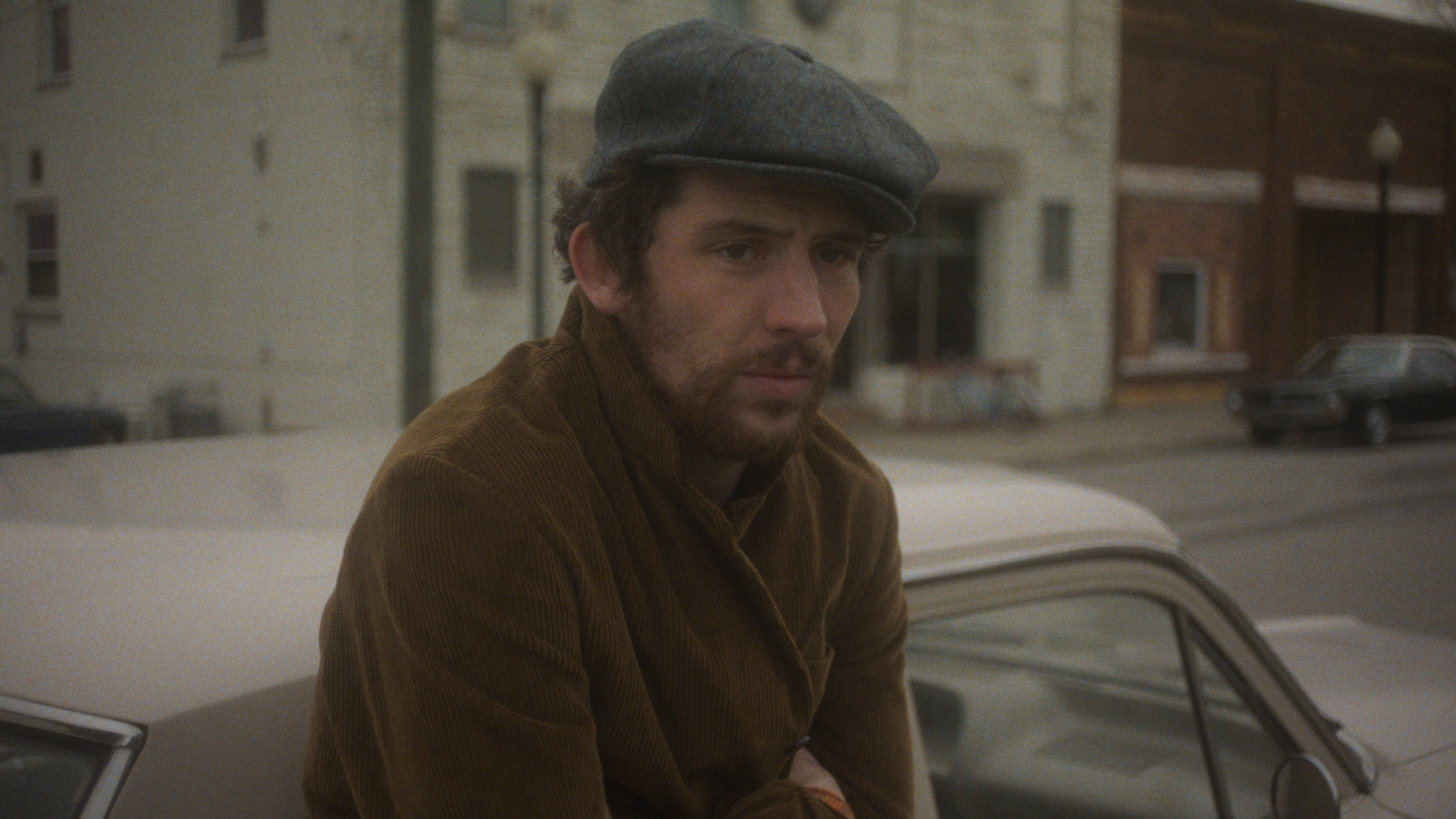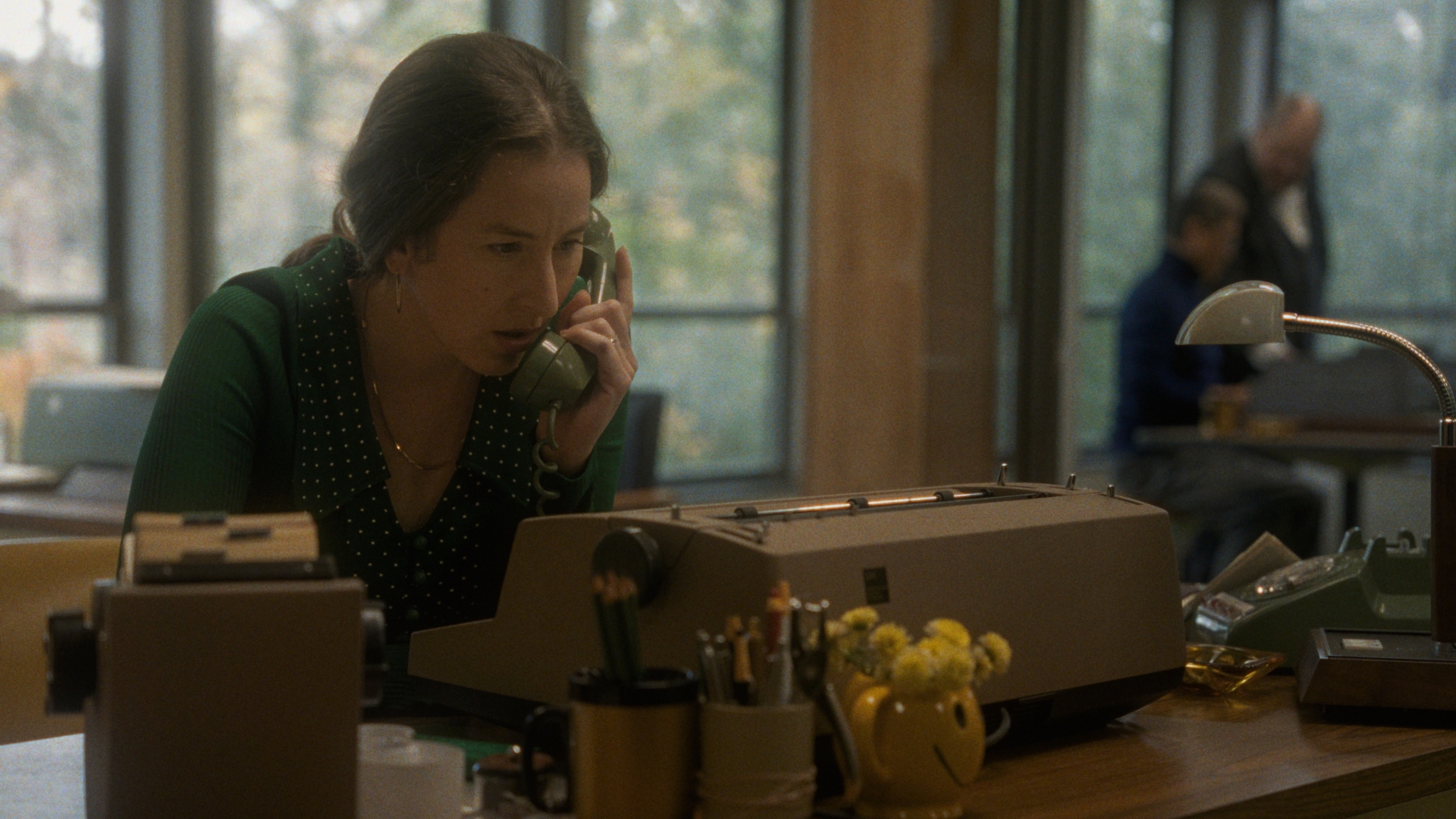
Starring Josh O’Connor and Alana Haim, Kelly Reichardt’s latest is set against the backdrop of 1970s Nixonian politics and Vietnam War-era protests.
Kelly Reichardt’s slight-yet-mighty movies have a way of sneaking up on you. A master of contemplative slow-burn cinema by reputation, the filmmaker is known for working to micro-budgets and shooting on location. Her scripts often feature “deglamorized” studies of working-class characters who (though she’s said she doesn’t aim to make political films) tend to act as emblems of a wider zeitgeist in particular periods of Americana.
The Mastermind, the auteur’s 1970-set latest, plays out against a backdrop of Nixonian politics and Vietnam War-era protests. Out-of-work carpenter J.B. Mooney (Josh O’Connor) is our hangdog antihero, an amateur art thief and suburban father of two, living off handouts from his parents. He begins the film by casing the joint—that is, a sleepy, fictional museum in the actual town of Framingham, Massachusetts. In a clip you can watch for yourself on MUBI’s Youtube channel, J.B. unlocks a display case and palms a wooden figurine, gingerly testing the waters of the crime he yearns to commit. The snare drums in Rob Mazurek’s luscious free jazz score quicken, then fade away.

Alana Haim in Kelly Reichardt’s The Mastermind
In her subversive deconstruction of the typical heist movie formula, Reichardt has engineered The Mastermind to be a gradually-imploding comedy of errors. The film’s focus is on the aftermath of the score, which involves the theft of four abstract paintings by American modernist Arthur Dove—and threatens to derail itself multiple times. When one of his equally hapless accomplices sells him out to the police. J.B. is all bluster and white privilege, brushing off the allegations while invoking his father’s status as a county judge.
But it’s already all over the papers. How can he possibly flip the goods in this media storm? Our eponymous mastermind doesn’t seem to have put all that much thought into it. We see him treat the art with a loving reverence, carefully unwrapping and rewrapping the canvases in muslin and—in one brief and strikingly intimate scene—he even replaces the wall art above his sofa with a Dove (Tree Forms (1932) if I’m remembering right). It’s a revelatory moment for O’Connor’s character: a smug art school dropout convinced that only he understands the true value of his loot; an entitled man starving for beauty and blind to the treasures already extant in his life.
The Mastermind reflects a political spirit of individualism that feels both contemporaneously timely and of its bygone era. Reichardt’s study of a vacuous person with no true allegiances or aspirations is filled with beauty, irony, and humour—a quietly compelling portrait of a man and his rapacious nation that stays with you long after the lights come up.
Reichardt’s penchant for observational tragicomedy shines through the script as J.B. tries to make his heist work around his parental responsibilities, ends up in a confrontation with the Irish mob, and begins to exhaust all the goodwill he has. Depending on your perspective, Alana Haim’s presence in this film is either frugally deployed or criminally under-utilised. (Either way, it’s in keeping with Reichardt’s general ‘less-is-more’ policy.) As J.B.’s wife Terri Mooney, she performs disappointment with her eyes while moving toward the decision to protect herself and their sons from her husband’s reckless actions. Her wardrobe, designed by Amy Roth, mirrors this journey as she trades her rosy, feminine garments for a terry cloth bathrobe in a cool shade of azure.
Many of the film’s colours tend to be desaturated autumnal tones that gesture to a sense of finality—like the dried-blood burgundy of the mobsters’ car or the orange hues in the bohemian Nehru collar shirt J.B. dons while on the lam. He finds some sympathy when staying with his old friend Fred (John Magaro), who suggests he should join his brother’s Canadian commune, currently populated by “draft dodgers, radical feminists, dope fiends—nice people.”
J.B. snobbishly rejects the opportunity, ultimately condemning himself to an ending emphatic of his ignorant apathy and hubris. In this way, The Mastermind reflects a political spirit of individualism that feels both contemporaneously timely and of its bygone era. Reichardt’s study of a vacuous person with no true allegiances or aspirations is filled with beauty, irony, and humour—a quietly compelling portrait of a man and his rapacious nation that stays with you long after the lights come up.





